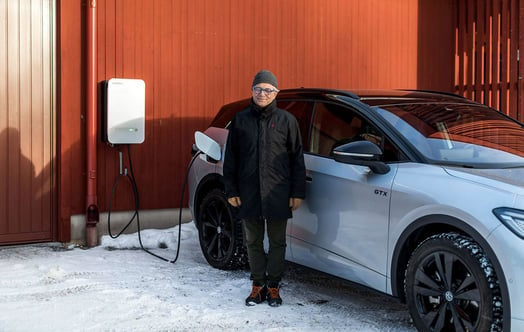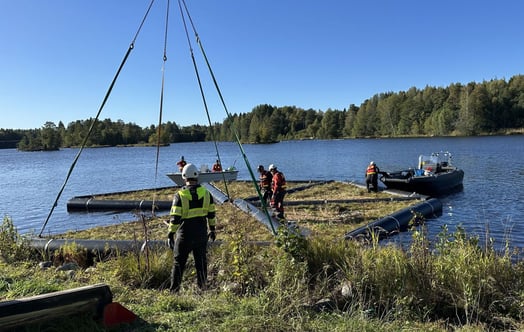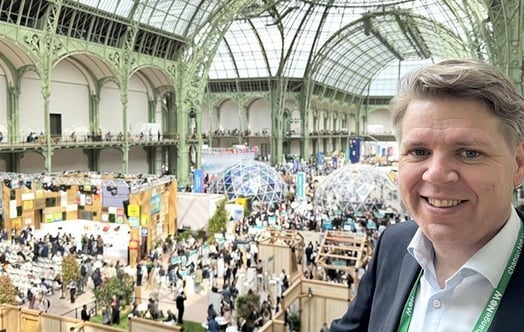Hesitant electrofuel market for the aviation industry
Vattenfall is working to enable fossil-free living, including through partnerships to investigate the possibilities to produce electrofuel for the aviation industry (eSAF) on a large scale. However, the market is hesitant and will probably only mature later on, a bit into the 2030s.
Vattenfall continuously evaluates new opportunities in line with our strategy. The best projects qualify from the feasibility study phase, and in some projects it takes longer before all the prerequisites are in place to be able to start an investment.
"When it comes to the HySkies project, which has had the ambition to start production around 2030, we are not getting the necessary signals from market players right now. The development of electrofuels for aviation indicates that the market will mature later on, but right now it is too early to take the next step in some projects," says Per Sundell, Senior Business Developer, Vattenfall.
The market for electrofuels is likely to grow, but at the moment we do not see that long fuel contracts are being signed for eSAF and that is one of the reasons why no investment decisions are being made for new production facilities," adds Per Sundell.
Since 2021, Vattenfall has collaborated with Shell in the HySkies project to investigate the conditions for being able to produce eSAF on a large scale in Forsmark. Both Shell and Vattenfall believe that the market will mature later than the initial analyses showed. HySkies is now paused. Against this background, it will be a natural consequence that our Heat CCU (Carbon Capture and Utilization) project in Uppsala will also be paused. If the HySkies project is restarted, or if new demand arises, it may be an opportunity to continue the development of CCU.
"Vattenfall sees itself as a partner and enabler for the transition to a fossil-free society. On the day the market conditions become clearer and there is a demand, it is of course possible to restart this or similar projects. The conditions in the Forsmark region are still the same and good," says Per Sundell. "We have learned a lot about the potential of electrofuels, the most important success factors and how a new value chain for production can be built, as well as what role an energy company can play. From that perspective, the feasibility study has been a success," he adds.
Vattenfall is also involved in other partnerships in sustainable fuels, such as Vattenfall's feasibility study for electrofuels on the west coast with St1, where the same type of challenges have been faced.
"There is a great need for solutions if we are to be able to fly in the future as well, and so far there are no realistic alternatives to deal with the climate impact of the hundreds of millions of cubic meters of fossil aviation fuel that are consumed globally annually. The work of recent years has strengthened our view of eSAF as the prime candidate for producing fossil-free aviation fuel in large volumes within 10-15 years, but production cost and energy efficiency have proven to be a major challenge that needs to be addressed further in the future," says Mikael Nordlander, Head of Vattenfall's Industrial Partnerships.
Electrofuel facts:
- Electrofuel is a type of SAF (Sustainable Aviation Fuel).
- Instead of using fossil raw materials, fossil-free electricity, recycled carbon dioxide and water are used in the process to produce electrofuel. The electricity is used to produce fossil-free hydrogen with electrolysis.
- Today's aircraft are certified to fly with a maximum of 50% SAF, the rest is traditional jet fuel.



